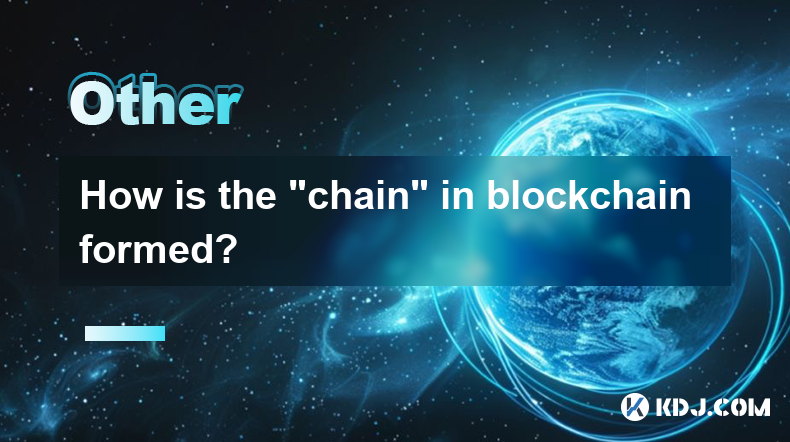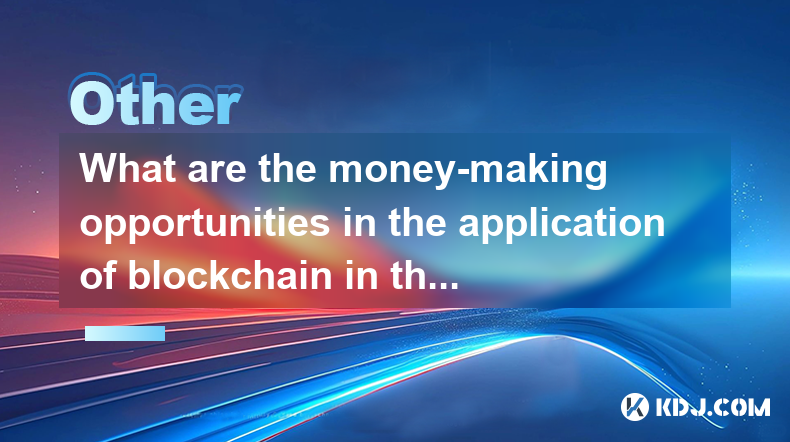-
 Bitcoin
Bitcoin $83,418.1551
-0.31% -
 Ethereum
Ethereum $1,808.8979
-0.41% -
 Tether USDt
Tether USDt $0.9999
0.02% -
 XRP
XRP $2.1463
1.00% -
 BNB
BNB $593.3907
-0.49% -
 Solana
Solana $120.0979
-1.63% -
 USDC
USDC $1.0001
0.00% -
 Dogecoin
Dogecoin $0.1689
-0.83% -
 Cardano
Cardano $0.6536
-1.17% -
 TRON
TRON $0.2370
-0.75% -
 Chainlink
Chainlink $12.8454
-0.75% -
 UNUS SED LEO
UNUS SED LEO $9.1245
-0.51% -
 Toncoin
Toncoin $3.2503
-4.22% -
 Stellar
Stellar $0.2527
-2.58% -
 Avalanche
Avalanche $17.8357
-1.69% -
 Shiba Inu
Shiba Inu $0.0...01231
-0.09% -
 Sui
Sui $2.2068
-1.49% -
 Hedera
Hedera $0.1623
-0.93% -
 Litecoin
Litecoin $82.5360
-2.34% -
 Polkadot
Polkadot $3.9567
-1.88% -
 Bitcoin Cash
Bitcoin Cash $306.9330
1.70% -
 MANTRA
MANTRA $6.2879
0.30% -
 Dai
Dai $1.0001
0.01% -
 Bitget Token
Bitget Token $4.4588
-1.48% -
 Ethena USDe
Ethena USDe $0.9992
0.01% -
 Pi
Pi $0.6376
24.33% -
 Hyperliquid
Hyperliquid $11.9460
0.08% -
 Monero
Monero $213.4997
-0.58% -
 Uniswap
Uniswap $5.8533
-0.79% -
 OKB
OKB $52.7441
6.99%
How is the "chain" in blockchain formed?
Blockchain's chain forms by chronologically linking blocks; each block contains the previous block's cryptographic hash, ensuring data integrity and preventing tampering through immutable linking. Miners verify transactions and add blocks, varying slightly by consensus mechanism.
Mar 18, 2025 at 02:31 am

Key Points:
- Blockchain's "chain" is formed by linking blocks together chronologically.
- Each block contains a cryptographic hash of the previous block, creating an immutable chain.
- This linking process ensures data integrity and prevents tampering.
- Miners play a crucial role in verifying transactions and adding new blocks to the chain.
- The specific mechanisms for chain formation vary slightly depending on the consensus mechanism used (Proof-of-Work, Proof-of-Stake, etc.).
How is the "chain" in blockchain formed?
The term "blockchain" itself hints at the fundamental structure: a chain of blocks. But how exactly is this chain formed? It's a process involving several crucial steps, all revolving around cryptographic security and consensus mechanisms. The core idea is to link blocks together chronologically in a way that makes altering past data extremely difficult, if not impossible.
Understanding this process requires grasping the concept of a block. Each block acts as a container, storing a batch of validated transactions. These transactions might be cryptocurrency transfers, smart contract executions, or other data relevant to the specific blockchain. Crucially, each block includes a cryptographic hash of the previous block.
This cryptographic hash is a unique digital fingerprint of the previous block's data. Any change, however small, to the previous block would drastically alter its hash, rendering it incompatible with the current block. This inherent link is what creates the "chain." If someone attempts to alter a past transaction, the subsequent hashes would become invalid, immediately revealing the tampering.
The process of adding a new block to the chain isn't automatic. It involves a process of verification and consensus, depending on the specific blockchain's mechanism. In Proof-of-Work (PoW) systems like Bitcoin, miners compete to solve complex cryptographic puzzles. The first miner to solve the puzzle gets to add the next block to the chain, receiving a reward in cryptocurrency.
In Proof-of-Stake (PoS) systems, validators are selected based on the amount of cryptocurrency they stake. These validators then participate in the process of verifying and adding new blocks, with the probability of selection proportional to their stake. Both methods ensure that adding a block requires significant computational power or staked cryptocurrency, deterring malicious actors.
The cryptographic hash function used plays a vital role. These functions are designed to be one-way; it's easy to calculate the hash from the input data, but computationally infeasible to reverse the process and find the original data from the hash. This ensures the integrity of the chain.
Beyond the basic linking of blocks via hashes, other factors contribute to the chain's security. These include the distribution of the blockchain across numerous nodes (computers), making it resistant to single points of failure or attack. The decentralized nature of most blockchains prevents any single entity from controlling the chain or altering its history.
The formation of the blockchain is a continuous process. As new transactions are validated, they are grouped into blocks, and these blocks are added to the chain. This ongoing process ensures the blockchain remains an up-to-date and tamper-proof record of transactions. The security and reliability of this chain are paramount to the functionality of the entire cryptocurrency system.
The specific details of how a block is added to the chain might vary slightly across different blockchain platforms. However, the fundamental principle of linking blocks chronologically using cryptographic hashes remains consistent across all blockchain implementations. This provides the foundation for the immutability and security that define blockchain technology.
Frequently Asked Questions:
Q: What is a cryptographic hash?
A: A cryptographic hash is a one-way function that transforms any input data into a fixed-size string of characters (the hash). Even a tiny change in the input data drastically alters the output hash. This makes it incredibly difficult to reverse-engineer the original data from the hash, crucial for security.
Q: How does the blockchain prevent double-spending?
A: The chain structure prevents double-spending because every transaction is recorded on a public, distributed ledger. Once a transaction is added to a block and that block is added to the chain, it becomes virtually impossible to reverse or alter it. The cryptographic linking of blocks ensures that any attempt to spend the same cryptocurrency twice would be immediately detectable.
Q: What happens if a miner adds a fraudulent block?
A: If a miner tries to add a fraudulent block (e.g., one containing a double-spending transaction), the other nodes in the network will reject it. The network consensus mechanism ensures that only valid blocks are added to the main chain. A fraudulent block might temporarily appear on a smaller, alternative chain, but it will be quickly overtaken by the legitimate chain as more miners add blocks to it.
Q: How is the chain's security maintained?
A: The chain's security relies on several factors: the cryptographic hashing algorithm, the consensus mechanism (PoW or PoS), the distributed nature of the blockchain across numerous nodes, and the computational power required to attack the network. The combination of these factors makes it extremely difficult and costly to compromise the blockchain's integrity.
Q: Can the blockchain ever be broken?
A: While incredibly secure, a blockchain is not unbreakable. Theoretically, a sufficiently powerful attacker could potentially control more than 50% of the network's computing power (in a PoW system) or stake (in a PoS system) and attempt to rewrite the chain. However, this would require an enormous amount of resources and is considered highly improbable for most established blockchains.
Disclaimer:info@kdj.com
The information provided is not trading advice. kdj.com does not assume any responsibility for any investments made based on the information provided in this article. Cryptocurrencies are highly volatile and it is highly recommended that you invest with caution after thorough research!
If you believe that the content used on this website infringes your copyright, please contact us immediately (info@kdj.com) and we will delete it promptly.
- Is Ethereum (ETH) Dead as an Investment?
- 2025-04-06 08:40:12
- Bitunix exchange launches the Ultra version of K-line (candlesticks) on its mobile app integrated with TradingView
- 2025-04-06 08:40:12
- As XRP Has Become the Focus of the Market Due to Ripple's Legal Victory and ETF Expectations
- 2025-04-06 08:35:12
- Trump-Themed Coins Dominate the List of Top-Performing Cryptos Today
- 2025-04-06 08:35:12
- Meme Coins Could Be Solana (SOL)'s Secret Weapon to $1,000
- 2025-04-06 08:30:12
- Did BlackRock's CEO Just Describe XRP Without Saying Its Name? Plus, One Ripple Alternative You Haven't Heard Of
- 2025-04-06 08:30:12
Related knowledge

Is the ranking of Chinese blockchain apps real and reliable?
Apr 04,2025 at 09:01pm
The ranking of Chinese blockchain apps has become a topic of interest for many in the cryptocurrency community, as it provides insights into the popularity and adoption of blockchain technology within China. However, the reliability and authenticity of these rankings are often questioned. This article aims to delve into the factors that influence these ...

What are the future development trends of blockchain game development?
Apr 03,2025 at 05:00am
Blockchain technology has revolutionized various industries, and gaming is no exception. As we look to the future, several trends are set to shape the development of blockchain games. These trends not only promise to enhance the gaming experience but also to integrate blockchain technology more seamlessly into the gaming ecosystem. Let's explore these t...

What are the high-return opportunities for blockchain investments?
Apr 05,2025 at 02:35pm
Blockchain technology has revolutionized the financial world, offering numerous high-return investment opportunities. These opportunities span various sectors within the cryptocurrency ecosystem, including cryptocurrencies, decentralized finance (DeFi), non-fungible tokens (NFTs), and blockchain startups. Each of these areas presents unique risks and re...

What are the maintenance costs of blockchain system development?
Apr 03,2025 at 06:07pm
The maintenance costs of blockchain system development are multifaceted and depend on various factors. These costs can include technical maintenance, security updates, infrastructure expenses, and personnel costs. Understanding these elements is crucial for anyone planning to develop or maintain a blockchain system. Technical MaintenanceTechnical mainte...

What are the money-making models of blockchain games?
Apr 04,2025 at 02:00pm
Blockchain games have emerged as a revolutionary way for players to earn real money while enjoying their favorite pastime. These games leverage the power of blockchain technology to create unique money-making models that benefit both the players and the developers. In this article, we will explore the various money-making models of blockchain games and ...

What are the money-making opportunities in the application of blockchain in the field of Internet of Things?
Apr 05,2025 at 10:35pm
The integration of blockchain technology with the Internet of Things (IoT) presents numerous money-making opportunities. Blockchain, with its decentralized and secure nature, can revolutionize how IoT devices interact, manage data, and conduct transactions. This article will explore various avenues where entrepreneurs, developers, and investors can capi...

Is the ranking of Chinese blockchain apps real and reliable?
Apr 04,2025 at 09:01pm
The ranking of Chinese blockchain apps has become a topic of interest for many in the cryptocurrency community, as it provides insights into the popularity and adoption of blockchain technology within China. However, the reliability and authenticity of these rankings are often questioned. This article aims to delve into the factors that influence these ...

What are the future development trends of blockchain game development?
Apr 03,2025 at 05:00am
Blockchain technology has revolutionized various industries, and gaming is no exception. As we look to the future, several trends are set to shape the development of blockchain games. These trends not only promise to enhance the gaming experience but also to integrate blockchain technology more seamlessly into the gaming ecosystem. Let's explore these t...

What are the high-return opportunities for blockchain investments?
Apr 05,2025 at 02:35pm
Blockchain technology has revolutionized the financial world, offering numerous high-return investment opportunities. These opportunities span various sectors within the cryptocurrency ecosystem, including cryptocurrencies, decentralized finance (DeFi), non-fungible tokens (NFTs), and blockchain startups. Each of these areas presents unique risks and re...

What are the maintenance costs of blockchain system development?
Apr 03,2025 at 06:07pm
The maintenance costs of blockchain system development are multifaceted and depend on various factors. These costs can include technical maintenance, security updates, infrastructure expenses, and personnel costs. Understanding these elements is crucial for anyone planning to develop or maintain a blockchain system. Technical MaintenanceTechnical mainte...

What are the money-making models of blockchain games?
Apr 04,2025 at 02:00pm
Blockchain games have emerged as a revolutionary way for players to earn real money while enjoying their favorite pastime. These games leverage the power of blockchain technology to create unique money-making models that benefit both the players and the developers. In this article, we will explore the various money-making models of blockchain games and ...

What are the money-making opportunities in the application of blockchain in the field of Internet of Things?
Apr 05,2025 at 10:35pm
The integration of blockchain technology with the Internet of Things (IoT) presents numerous money-making opportunities. Blockchain, with its decentralized and secure nature, can revolutionize how IoT devices interact, manage data, and conduct transactions. This article will explore various avenues where entrepreneurs, developers, and investors can capi...
See all articles





















































































